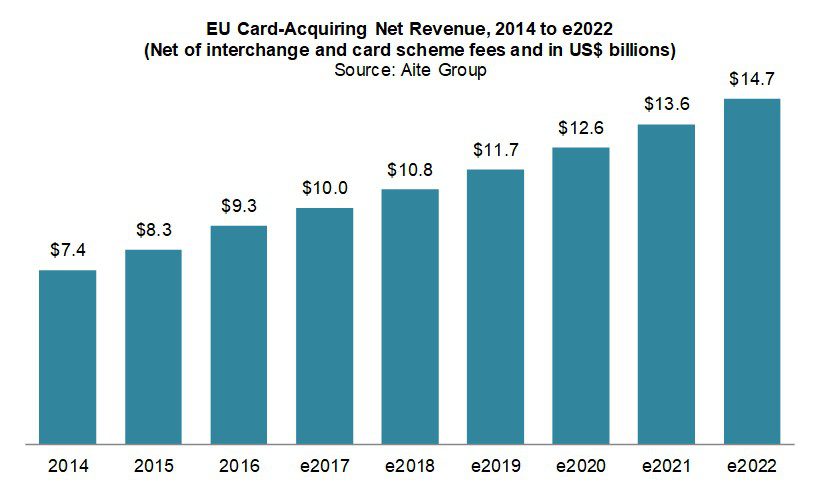Artificial Intelligence (AI) is increasingly integrated into various industries, reshaping businesses’ operations. From automating repetitive tasks to making critical decisions, AI is becoming indispensable. However, as enterprises adopt AI technology, ethics becomes crucial. Ethical AI ensures that AI technologies are developed and implemented responsibly, avoiding harm and promoting fairness. As the demand for AI grows, businesses must consider how their use of AI impacts society and their customers. This post explores why ethical AI is essential and why companies can’t afford to ignore it.

What is Ethical AI?
Ethical AI refers to developing and using AI technologies that align with ethical standards, such as fairness, transparency, accountability, and respect for human rights. If left unchecked, AI systems can perpetuate biases, make unjust decisions, or violate privacy. Ethical AI aims to prevent such outcomes by ensuring that AI is designed and implemented to benefit society without causing harm.
Key principles of ethical AI include:
- Fairness: Ensuring AI systems make decisions impartially, avoiding biases that could disadvantage certain groups.
- Transparency: Making AI processes and decision-making visible and understandable to stakeholders.
- Accountability: Holding businesses responsible for the actions and outcomes produced by their AI systems.
- Privacy: Protecting personal data and ensuring AI systems comply with data protection regulations.
By adhering to these principles, businesses can ensure that their AI use is aligned with legal standards and public expectations.
The Business Case for Ethical AI
In today’s competitive business environment, ethical considerations are significant to a company’s reputation and success. The business case for ethical AI is clear: Companies prioritizing ethical AI can build trust, enhance their brand reputation, and mitigate risks.
Building Consumer Trust and Loyalty
Consumers are becoming more conscious of how companies handle their data and make decisions, especially when AI is involved. Ethical and responsible AI can help build consumer trust by ensuring businesses make fair and transparent decisions. For instance, customers are likelier to engage with a company that protects their data, avoids discriminatory practices, and uses AI responsibly. This trust can lead to long-term customer loyalty, an invaluable asset in today’s marketplace.
Enhancing Brand Reputation
Incorporating ethical AI into business practices doesn’t just prevent problems—it also creates opportunities. Companies that demonstrate a commitment to ethics in AI can differentiate themselves in a crowded market. A strong ethical reputation can increase a company’s credibility, attract customers, and enhance its image. On the other hand, businesses that ignore ethical considerations in their AI use risk harming their reputation, which could lead to negative publicity, lost customers, and a weakened market position.
Risk Management
If not developed ethically, AI systems can pose significant risks. These risks include algorithmic biases, data breaches, and unethical decision-making that harms individuals or communities. By integrating ethical AI practices, businesses can manage these risks more effectively. Ensuring fairness and transparency in AI systems can prevent legal challenges, regulatory fines, and public backlash, which could otherwise harm the business financially and reputationally.
Ethical AI as a Competitive Advantage
While some companies may see ethical AI as a compliance requirement or a moral obligation, others recognize it as a competitive advantage. Businesses that invest in ethical AI practices often attract consumers, employees, and partners who value responsibility and fairness. This can help them stand out in a marketplace where consumers increasingly prioritize social and environmental impact. Ethical AI, when executed well, is not just a risk management tool—it can drive innovation and business growth.
The Risks of Ignoring Ethical AI
While ethical AI offers many benefits, businesses that fail to adopt these practices face significant risks. Ignoring ethical AI can result in severe consequences, both immediate and long-term.
Reputational Damage
A company’s reputation is one of its most valuable assets. Ethical lapses in AI can cause significant reputational damage, especially regarding public perceptions of fairness and privacy. If customers believe a business uses AI irresponsibly or unfairly, they may take it elsewhere. Negative media coverage and consumer backlash can tarnish a company’s reputation, leading to lost sales and reduced brand value.
Legal and Regulatory Consequences
Governments and regulatory bodies worldwide are increasingly focusing on the ethical use of AI. Many regions have introduced or are planning to introduce regulations that govern AI technologies, especially regarding data privacy and non-discrimination. Businesses that fail to comply with these regulations may face legal consequences, including fines, lawsuits, and reputational harm. Moreover, unethical AI practices can lead to legal challenges from individuals or groups affected by biased algorithms or unfair decisions.
Short-Term Gains vs. Long-Term Sustainability
Some businesses may be tempted to cut corners when implementing AI, hoping to reap short-term rewards without considering the long-term implications. However, ignoring ethical AI is ultimately a short-sighted strategy. Unethical AI practices can lead to negative publicity, legal problems, and lost consumer trust—costing businesses more in the long run than any immediate gains. By prioritizing ethical AI, companies can ensure sustainable growth and long-term success.
How to Implement Ethical AI in Your Business
Adopting ethical AI practices requires a structured approach. Businesses must develop a strategy that aligns with their organizational goals and societal expectations. Here are some key steps to help companies to implement ethical AI:
Develop an Ethical AI Framework
Start by developing an ethical AI framework that outlines the principles and guidelines for AI development and usage within your organization. This framework should cover fairness, transparency, privacy, and accountability. A well-defined framework will ensure that all AI systems are developed responsibly and aligned with ethical standards.
Collaborate with Experts in AI Ethics
AI ethics is a complex and rapidly evolving field. To ensure that your AI systems are ethical, it’s crucial to collaborate with experts in AI ethics, legal compliance, and data privacy. These professionals can help guide your efforts and ensure your AI practices meet industry standards and regulatory requirements.
Regular Audits and Transparency
Ethical AI requires continuous oversight. Implement regular audits to assess your AI systems’ functioning and ensure they align with ethical standards. Transparency is key—being open with stakeholders about how your AI systems work and the steps you’ve taken to ensure fairness and accountability is crucial for maintaining trust.
Educate Your Team
Building a culture of ethical AI within your organization starts with education. Provide training to your employees on the moral implications and how to implement AI systems responsibly. Ensuring your team understands the importance of ethics in AI will help promote responsible AI development throughout the organization.
The Future of Ethical AI and Business Growth
As AI technologies advance, ethical considerations will become even more crucial. Businesses that prioritize ethical AI today will be better positioned to navigate the challenges of the future. Ethical AI will help companies comply with evolving regulations and serve as a key driver of growth and innovation. Companies can ensure their long-term success and sustainability by focusing on ethical AI now.
Conclusion
The importance of ethical AI cannot be overstated. As AI becomes integral to business operations, companies must prioritize fairness, transparency, and accountability to build trust and mitigate risks. Ignoring ethical AI is not an option—businesses that fail to adopt responsible practices risk harming their reputation, facing legal consequences, and missing out on long-term growth opportunities. Ethical AI is not just a trend—it’s a strategic investment in the future of your business. Can your business afford not to care about ethical AI? The answer is clear.
HedgeThink.com is the fund industry’s leading news, research and analysis source for individual and institutional accredited investors and professionals
































